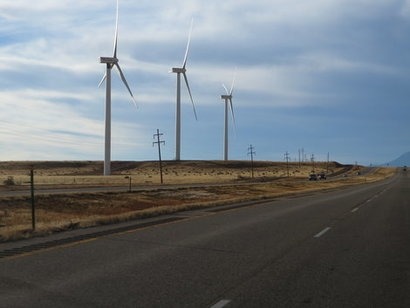
The redwood country of northern California is home to the Blue Lake Rancheria Tribe which in 2008 established a new energy vision including a target of zero net greenhouse gas (GHG) emissions and 100 percent renewable energy to power the tribal community.
“Our first experience with NREL was attending a tribal energy development workshop in 2012, and we were so impressed” said Blue Lake Rancheria Energy Director Jana Ganion. “NREL provides expert, practical support for tribes seeking to develop renewable energy, from facility scale to community scale to utility scale [and] can provide specific project review as well as technology and financial feasibility information to design, fund, and implement renewable energy systems. And by actively working to include tribal governments across all their research and development areas, NREL has demonstrated a sustained commitment to Indian country.”
Ms Ganion has attended several more workshops since then, both as a participant and as a presenter. Meanwhile, the tribe has aggressively pursuing its goals, emerging as a national leader in clean energy development and climate resilience. In December 2014, Blue Lake Rancheria became one of 16 US communities designated as a 2015–2016 White House Climate Action Champion. The White House had noted the tribes 35 percent energy consumption reduction and its commitment to reducing GHG emissions by 40 percent by 2018.
The tribe uses a range of approaches including on-site manufacturing of biodiesel to fuel public buses and aggressive energy efficiency measures. NREL provided it with technical assistance through the Energy Department’s Office of Indian Energy Policy and Programs in 2014 to help ensure the safety of the tribe’s cutting-edge biomass system.
In 2015 the tribe won a Strategic Technical Assistance Response Team (START) Program award from the Office of Indian Energy, and NREL is providing the requested technical assistance, including strategic communications planning to create a framework for stakeholder education and engagement around energy efforts, and measurement and verification support to establish a benchmark for energy efficiency and GHG inventories, which will provide the Rancheria with a dashboard for gauging progress toward its climate action goals.
A separate technical assistance project is taking a deep dive into building energy efficiency and capital expense project recommendations for the Rancheria. NREL experts, working with the Office of Indian Energy, are also reviewing cybersecurity for the tribe's low-carbon, community-scale microgrid.
The Blue Lake Rancheria project isn’t unique. NREL is also helping other Native American tribes across the country to lead in clean energy development, providing models for other governments to effectively transition to clean energy based economies. Tribal activities at NREL are supported by the Office of Indian Energy, US Department of the Interior (DOI) and the US Bureau of Reclamation. This includes the provision of data, technology neutral analytics, training and technical assistance to improve energy efficiency and tap into renewable energy resources.
For additional information:

